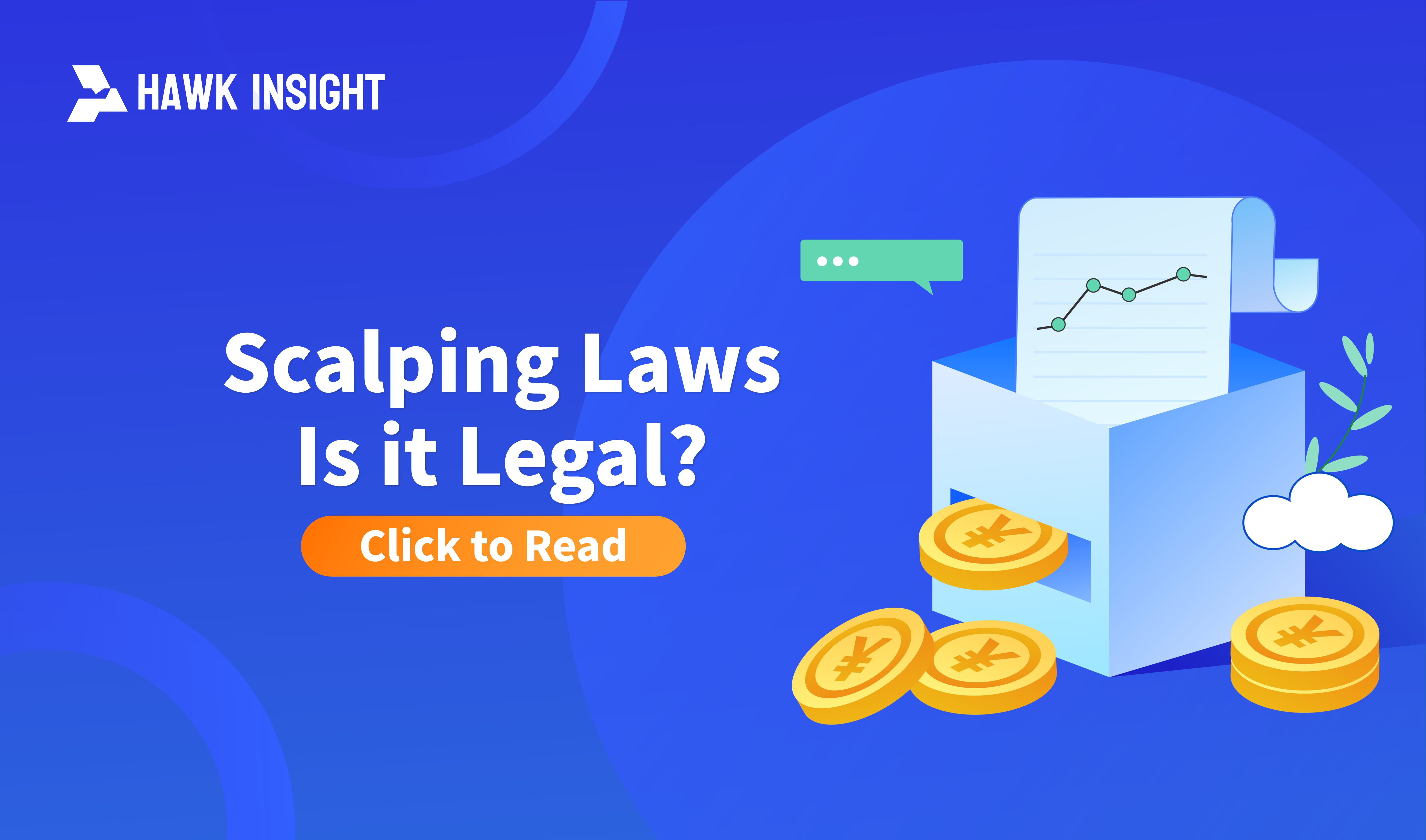Scalping Laws - Is it Legal?
Scalping is a popular trading style.It is used to buy and sell the same asset pretty quickly, within a short period of time, with the aim of making quick profits.

Scalping trading is a popular trading style where traders buy and sell the same asset within a short period to seek quick profits. However, the legality of scalping trading varies by region and financial market regulations. This article will explore the legal status of scalping trading and its regulations in different regions.
Legality of Scalping Trading
The legality of scalping trading varies by region. In some countries, scalping trading is considered a legitimate trading style and is not subject to any restrictions. However, in other countries, scalping trading is strictly regulated or even prohibited.
For example, in the United States, scalping trading is legal but subject to certain restrictions imposed by the Securities and Exchange Commission (SEC) and the Financial Industry Regulatory Authority (FINRA). In the European Union, the legality of scalping trading depends on the specific regulations of each member state.
Regulation of Scalping Trading in the United States
In the United States, scalping trading is regulated by the SEC and FINRA. These agencies aim to ensure that scalping trading is conducted fairly and transparently and does not pose a risk to the stability of financial markets. The SEC and FINRA impose two main restrictions on scalping trading: limits on the use of high leverage and the number of trades that can be made in a single day.
Limits on the Use of High Leverage
The use of high leverage is a significant risk factor in scalping trading. Leverage refers to using borrowed funds to increase the size of a trade, thereby magnifying potential profits and losses. The SEC and FINRA impose restrictions on the use of high leverage in scalping trading to protect investors from excessive risk.
In the United States, the maximum leverage ratio for stock trading is 2:1, meaning traders can control $2 worth of stock for every $1 in their account. However, for futures and options trading, the leverage ratio can be as high as 50:1, meaning traders can control $50 worth of futures or options for every $1 in their account.
Limits on the Number of Trades in a Single Day
In addition to limits on the use of high leverage, the SEC and FINRA also impose restrictions on the number of trades scalpers can make in a single day. This restriction is known as the Pattern Day Trading Rule (PDT) and applies to margin accounts. Under the PDT rule, if a trader makes four or more day trades (buying and selling the same asset within the same day) within five days in a margin account with less than $25,000 equity, the trader will be considered a pattern day trader and subject to PDT restrictions.
Regulation of Scalping Trading in the United Kingdom
In the United Kingdom, scalping trading is regulated by the Financial Conduct Authority (FCA). The FCA ensures that financial markets and institutions in the UK are fair, transparent, and in the best interest of consumers. The FCA imposes several restrictions on scalping trading to protect consumers from excessive risk and market manipulation.
Limits on the Use of High Leverage
The FCA imposes limits on the use of high leverage to protect consumers from excessive risk-taking and market manipulation. For example, the FCA has set leverage limits for retail clients trading Contracts for Difference (CFDs) at 30:1 for major currency pairs and 20:1 for non-major currency pairs, gold, and major indices. These limits were introduced in August 2018 to protect retail clients from excessive losses.
Limits on the Number of Trades in a Single Day
The FCA does not set specific limits on the number of trades that can be made in a single day. However, the FCA may take action against firms or individuals engaging in excessive trading or market manipulation. For example, the FCA may require firms to have adequate systems and controls to monitor and detect suspicious trading activity, including scalping.
Regulation of Scalping Trading in the European Union
Scalping trading in the European Union is regulated by the European Securities and Markets Authority (ESMA). ESMA is responsible for protecting investors and promoting stability and transparency in the EU's financial markets. The regulations on scalping trading may vary among member states. ESMA has imposed leverage limits for retail clients trading CFDs, such as 30:1 for major currency pairs and 20:1 for non-major currency pairs, gold, and major indices.
Conclusion
In conclusion, scalping trading is a popular trading style used by many traders worldwide. The legality of scalping trading depends on the regulations of the region where the trader is located. These restrictions may include limits on the use of leverage and the maximum number of trades made per day or over several days. Traders should understand the specific regulations in their region to ensure compliant trading and effective risk management.
Disclaimer: The views in this article are from the original Creator and do not represent the views or position of Hawk Insight. The content of the article is for reference, communication and learning only, and does not constitute investment advice. If it involves copyright issues, please contact us for deletion.